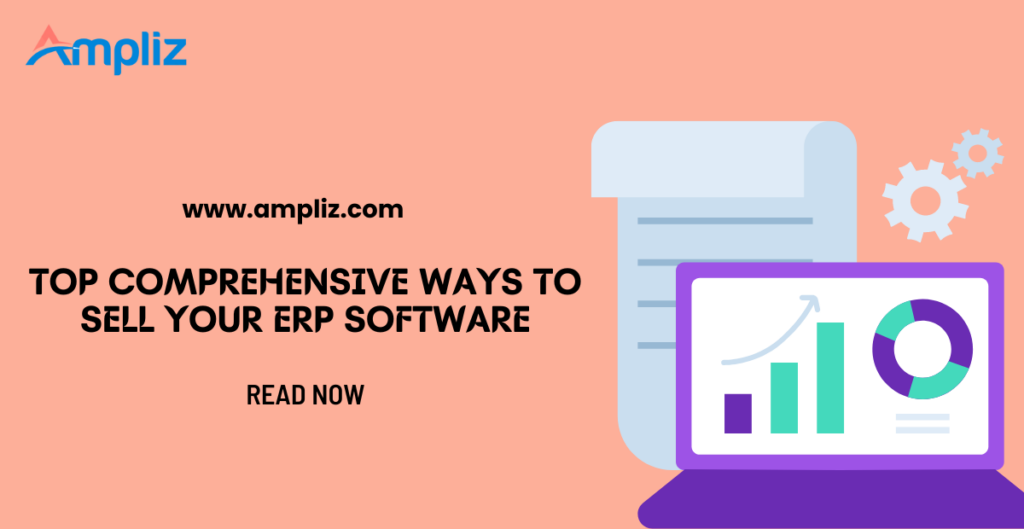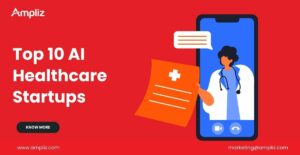Do you have question in your mind how to sell erp software? Are you tired of generating leads for your ERP software? You have spent long hours, days, and nights developing the solution that helps businesses to automate their processes and make their life easier.
You were very much optimistic about the market until you entered into it. As soon as you entered, you faced the scenarios opposite to that of your imagination. You are trying hard to generate leads for your business, but you are facing challenges.
Does it sound familiar to you? If yes, then you are not alone. Many people are in the same boat as you.
Due to a vast number of competing solutions, resistance from the people in accepting the change in strategy, the typically lengthy process of ERP implementation, and due to many more such reasons you must be finding it difficult to generate the leads for your ERP.
But by following certain strategies you certainly can fill your lead pipeline with quality leads. Intrigued to know about this strategy? Then keep reading this blog. You would not regret spending time on this blog.
Before we discuss how to market ERP software, let’s discuss which industry requires ERP.
Which industries require ERP?
Industries with complex operations such as supply chain management, inventory control, project planning control, and financial processes require ERP.
Although all industries can benefit from implementing ERP, there are specific industries where CRP implementation is inevitable.
Let’s see which are these industries.
1. Manufacturing
The manufacturing industry requires precise coordination of production planning, inventory management, supply chain risk optimization, and quality control. ERP software assists in automating these complex operations while ensuring real-time data visibility across all departments.
2. Distribution and Logistics
Warehousing, transportation, order tracking, and inventory management play a vital role in the distribution sector. With an ERP system in place, companies can effectively manage their warehouses by optimizing storage space utilization and reducing excess stock levels.
3. Retail
In today’s competitive retail landscape, staying ahead relies on efficient inventory management across multiple outlets or e-commerce platforms.
An ERP solution enables retailers to monitor stock levels accurately while facilitating seamless integration with Point of Sale (POS) systems for timely replenishment.
4. Healthcare
Hospitals and healthcare facilities need robust ERP solutions to streamline patient information management, appointment scheduling, billing procedures, pharmaceutical inventory control, and compliance with regulatory standards like HIPAA.
5. Financial Services
Banking institutions require comprehensive financial modules incorporated into their ERPs to handle accounting tasks such as general ledger maintenance or tax calculations efficiently. Master data in banks plays a pivotal role in this process, ensuring the accuracy and reliability of financial information.
Moreover, security features within ERPs ensure compliance with strict financial regulations.
6. Construction
The construction industry involves managing numerous projects simultaneously with complex procurement processes.
This involves subcontractors’ or suppliers’ collaboration agreements related to resource allocation or cost estimation changes throughout the projects’ lifecycle—ERPs facilitate project planning and enable effective resource allocation optimization.
7 . Education Sector
Educational institutions face challenges regarding student enrollment management , fees collection, examination schedules etc .
An integrated enterprise resource planning system assists educational organizations in handling admissions , finance & accounts along with other administrative tasks .
8 . Hospitality Industry
Hotels & resorts have multifaceted operational requirements encompassing reservation management, housekeeping, guest services, and inventory control.
An ERP system streamlines these processes by integrating them into one platform, enhancing customer satisfaction, and optimizing resource allocation.
So these are the companies you should target. Once you find out the targeted company, next comes reaching out to the key decision-makers of the company. Pitching your product to the right person makes a whole lot of difference.
Pitching the right decision-makers reduces your sales around time and allows you to have a more personalized conversation.
So when it comes to sales pitch for ERP software, whom should you contact in the company?
Who should you target to market your ERP product?
Reaching out to the right person is necessary in both online and offline marketing. Reaching out to the right person can speed up your erp lead generation process. So, who might be the right person to pitch when it comes to marketing your ERP product, let’s see.
- Administrator who is in charge of technology maintenance and ease of use
- C-suit decision-makers
- People in management who are in charge of scouting out future solutions to improve the efficiency of the team they manage.
How to Sell ERP Software?
How to approach decision makers of these Industries
There are many sales strategies for ERP software available by which you can contact them to promote and sell your product.
But before you reach out to them you need to be sure about many things like
- Your message should be clear
- Lead has the potential to get convert in customer
- Goal of contacting the prospect
Is it for
- providing a quote
- Setting up a demo
- Leaving a brochure
- Make a sale
Once you are clear with these things you can effectively communicate with your leads.
There are many ways of communicating with them, let’s discuss the most effective ones.
1. Cold calling
Though traditional, cold calling is one of the effective ways of approaching your leads if done properly. In the cold calls, you have the opportunity to directly talk to your leads, knowing their pain points.
But the key to holding the attention of your prospect during the call is the correct timing of the call, the shortest introduction, and more relevant questions regarding their problems.
Cold calling has its own sets of challenges but if you stay persistent, it does wonders to you.
For the success of cold calling, you need to consider several factors before making a call, which is
- Do in-depth research about the company of your lead. You must be aware of the recent event associated with the company. This helps you to connect more with the lead.
- Keep a prepared script handy. This helps you to sound confident and avoid any confusion during the call
- Listen actively. Even though you have prepared the script, don’t talk like a robot. Talk like a human.
- Maintain a positive mindset even after facing several rejections.
2. Email
Email is one of the greatest ways of approaching your lead. Even it enhances your chances of success with a cold call. Sending educational, entertaining, and promotional Emails regularly lets you become familiar with your lead.
If the person opens your mail every time you send a mail that indicates he/she is interested in your service/product. You can leverage this opportunity and make a call to them.
But for maximum potential, you must have accurate, and real-time updated email addresses of your leads. Otherwise, your email will get bounced and that may spoil the reputation of your domain.
Not sure where you get the accurate and real-time updated email addresses of your prospects? Of course, you can make your own email list by running ads on social media, but it takes time. If you want the email addresses of your prospects that are accurate and updated then Ampliz is the best place.
Ampliz provides you with an email address, direct dial, and LinkedIn profile of key decision makers of your lead. This helps you to increase the effectiveness of the email campaign.
3. Social Media
Social media platforms like LinkedIn and Twitter are best for promoting your ERP software as most business professionals spend time there. Here you can connect with them and engage on their post to gain visibility. Once you become somewhat familiar with them you can pitch your service.
You can also share posts in the form of texts, images, videos, infographics, and so on, to show your expertise and build credibility among your peers. Once you build a fairly good reputation on these platforms, generating inbound and outbound leads become easy.
4. Direct mail
You can send flyers, pamphlets, brochures, and letters to your old leads over mail. This makes your email short, crisp, and effective. But as mentioned above, it’s good for old leads, not for the new ones.
Final words
Though selling your ERP software, making revenue, and covering your ROI is important, the more than selling, gaining their trust, and building a long-term relationship is more important
Sales happen when your leads trust you. And they trust you when you give them solutions for
every problem they are facing. The solution doesn’t need to be your product only, you have to be honest while giving them a solution. If your product lacks some features they are looking for, you must recommend them to other suitable products.
This helps you to gain their trust, and when they gain the trust, they can’t resist themselves coming back to you.




